Introduction
Bluesky, the decentralized social media platform, has become a refuge for users disenchanted with X (formerly Twitter). Since the recent US elections, Bluesky has seen a dramatic surge in popularity, welcoming over 1 million new users in a matter of days. This migration underscores growing concerns about misinformation, toxicity, and user control on X.
About Bluesky
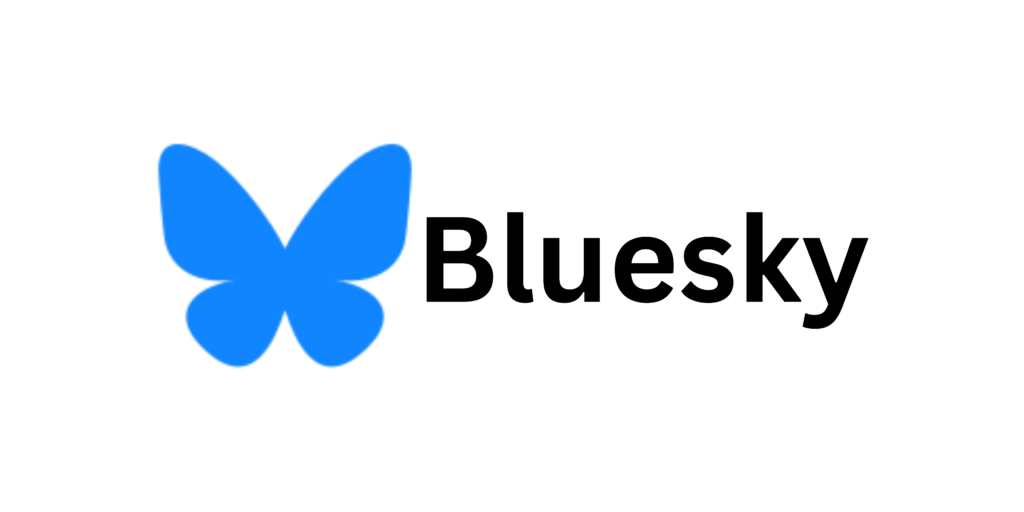
What is Bluesky?
Bluesky is a social media platform that allows users to post, reply, and interact in a vertical interface, resembling X in functionality but differing significantly in its user-focused design. The platform’s popularity has skyrocketed, with its user base growing from 9 million in September to over 15 million by mid-November.
The Origins of Bluesky
Bluesky was born out of an initiative within Twitter in 2019, when then-CEO Jack Dorsey envisioned an “open and decentralized standard for social media.” By 2021, the project became an independent entity under the leadership of Jay Graber, who now serves as its CEO and primary owner.
Why Bluesky Stands Out
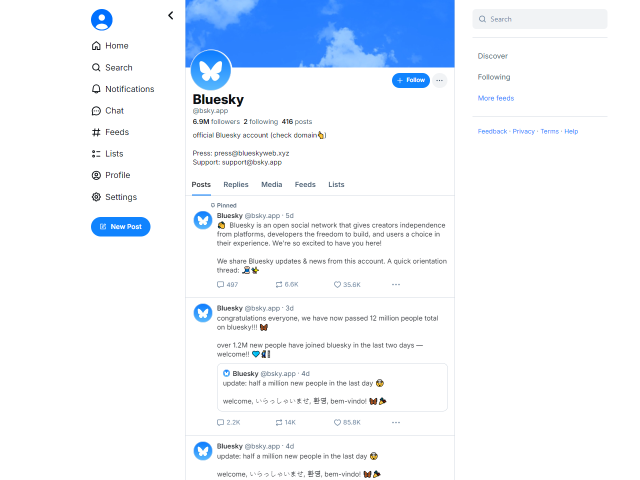
1. Customizable Algorithms
Bluesky empowers users with the ability to choose or create algorithms that dictate their feeds. This flexibility allows for tailored experiences, such as feeds focused on specific interests like photography, mutual connections, or niche hobbies.
2. Enhanced Moderation Tools
Bluesky introduces innovative moderation features:
- Users can detach their original posts from unwanted interactions, safeguarding them from harassment.
- Handles can include website addresses, doubling as a verification tool for professionals like journalists and public figures.
3. Decentralized and Transparent
Built on the AT Protocol, Bluesky promotes decentralization, ensuring no single entity holds absolute control over the platform. This fosters transparency and user trust.
The Exodus from X

Mounting Criticism of X
Since Elon Musk’s acquisition, X has faced backlash for controversial decisions and relaxed content moderation.
- The block function was altered, allowing blocked users to view posts from public accounts.
- The platform has struggled with bots, misinformation, and extremist content, making it less appealing to many users.
Political and Ethical Controversies
Musk’s alignment with political figures like president-elect Donald Trump has alienated parts of X’s user base. International organizations and anti-hate groups have expressed concerns about X’s role in spreading misinformation, particularly during sensitive periods like elections.
Specific Incidents Driving Migration
In September, X temporarily ceased operations in Brazil, leading to a surge of 3 million new users on Bluesky in just one week. Similarly, X’s controversial blocking policy changes brought 1.2 million users to Bluesky within two days.
Prominent Figures Joining Bluesky

Bluesky’s community has been enriched by high-profile personalities seeking a safer, more controlled online environment.
Political Leaders
Notable UK MPs, including Jess Phillips, Layla Moran, and Diane Abbott, have transitioned to Bluesky.
Celebrities and Influencers
- Jamie Lee Curtis deactivated her X account and announced her move on Instagram.
- Other prominent figures, such as naturalist Chris Packham, comedian Dara Ó Briain, and lexicographer Susie Dent, have also joined the platform.
Why Users Prefer Bluesky
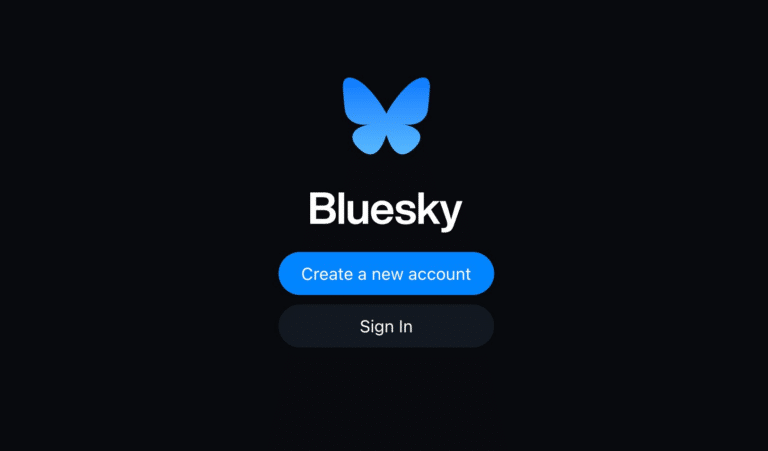
A Safer Online Space
Bluesky’s emphasis on “anti-toxicity” measures makes it an attractive alternative for users weary of X’s unregulated environment. Features like customizable feeds and robust moderation tools allow users to curate their experiences and avoid unwanted interactions.
User Empowerment
By decentralizing control and offering transparency, Bluesky resonates with individuals prioritizing autonomy and ethical governance in their digital lives.
The Road Ahead
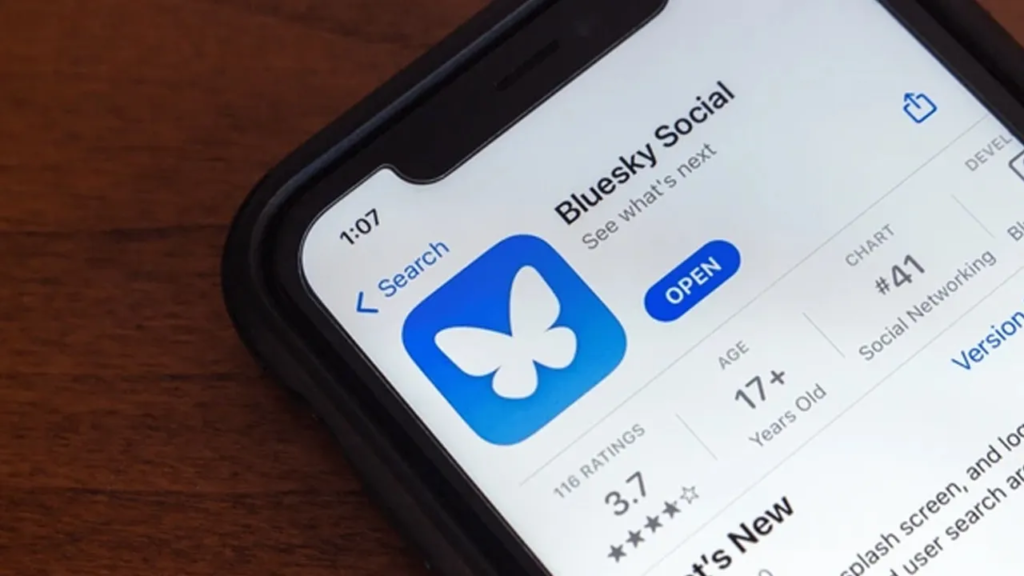
Bluesky’s rapid rise highlights a growing demand for safer, more user-centric social media platforms. While its journey is still unfolding, its innovative approach and commitment to user empowerment position it as a formidable contender in the social media landscape.
As more users and public figures make the switch, Bluesky is proving that the future of social media could very well lie in decentralization, customization, and respect for user safety.
If you enjoyed this article and want to dive deeper into blockchain and cryptocurrency, check it out here. Interested in the evolution of the internet from Web 1.0 to Web 3.0 and beyond? Discover more here.
Key Takeaway: Bluesky’s success marks a turning point in social media, where users increasingly seek platforms prioritizing control, transparency, and safety over chaos and controversy.

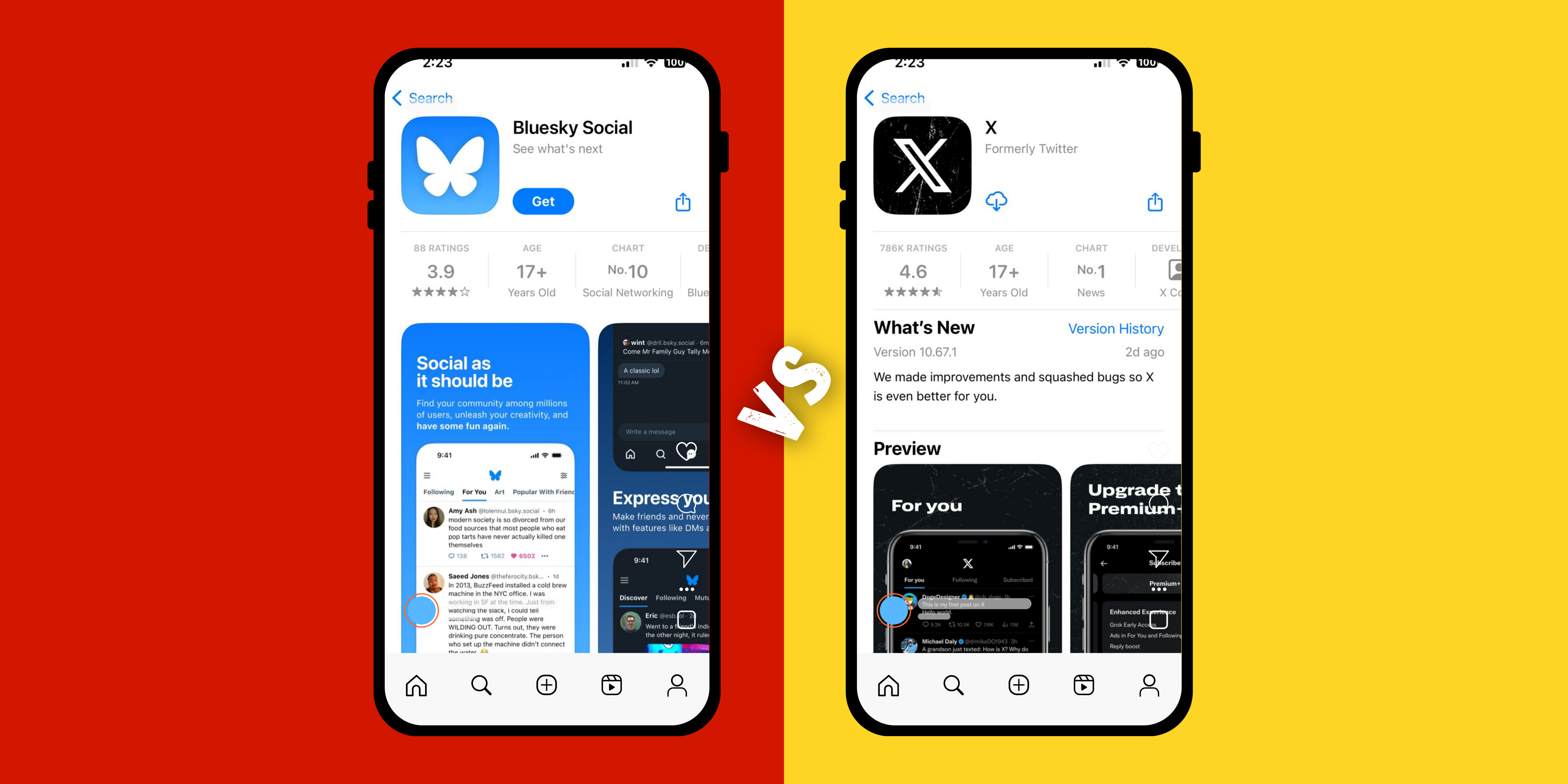


















Leave a Reply